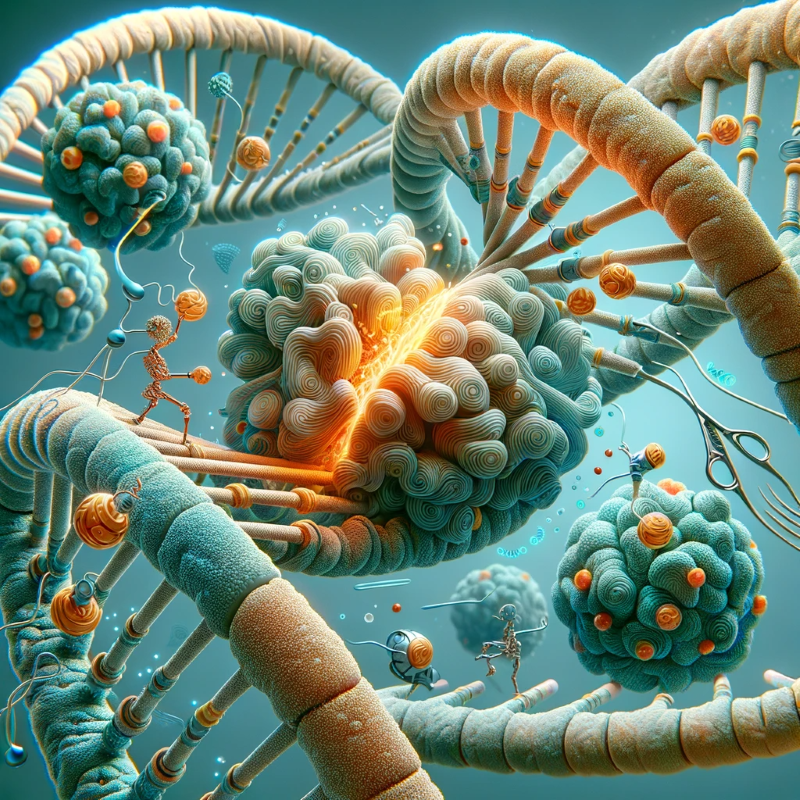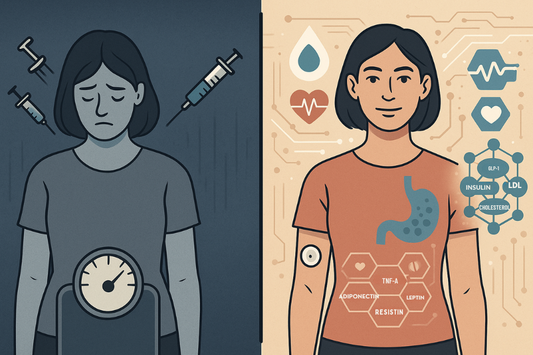Antioxidants and Immune Support Compounds: Misunderstood keys to Immune Resilience
This article is fourth in a series (of four) in which I examine herbal adaptogens, medicinal mushrooms, vitamins and minerals, antioxidants and other supplements, and the immune system.
We have focused on ARI's acute respiratory illnesses, such as the common cold, influenza, coronaviruses and pneumonia.
When we think of immune support, the essential vitamins and minerals usually take centre stage—vitamin D, zinc, and the like.
But, there’s a layer of support compounds that don’t often get as much spotlight yet play a decisive role. These compounds, known for their antioxidant properties, help the body combat oxidative stress and bolster immune defences, especially during illness.
Why are they misunderstood?
The body is well-adapted to managing stress and infections and has a sophisticated mechanism to do this.
Key enzymes like sodium dismutase and catalase need to be supported, and that is where antioxidants come in. (1,2) Although they can have a direct effect, their primary use is maintaining the normal function of the in-built mechanisms.
That is why cysteine is a key player in all the products supporting this system.
1. NAC (N-Acetyl Cysteine) - 600 mg
HIGHLY RECOMMEND*
NAC (3,4,5) is an extremely well-studied molecule in terms of how it works and its benefits. I am truly confused as to why it is not used more often in acute and chronic illnesses. There is no argument that it potently increases glutathione and also supports numerous bodily functions.
A lack of cysteine in the body will affect collagen and keratin production, a key reason we develop Beau's lines (ridges on the nails that correlate with times of illness) during illness. Cysteine is needed to make taurine, which is essential for bile and is important not only in digestion but also in excreting toxins via the liver.
"Cysteine steal" will also have a detrimental effect on the methyl cycle, which is essential for many body functions, including:
When glutathione production is prioritised over the methyl cycle due to a lack of cysteine many systems including methylation in the body is affected:
- Mood: Methylation-dependent pathways are affected: NAdr-Adr: methylation-dependent Low energy, resilience, burnout
- Anxiety: NAdr+ Adr- VMA (COMT): methylation-dependent Anxiety, restlessness, mood swings
- Oestrogen dominance: 2-OH oestradiol 4-OH to methoxy (COMT): methylation-dependent
- Histamine issues Histamine- N-methylhistamine (HNMT): methylation-dependent Histamine rxns
- Sleep: N-acetyl serotonin to melatonin (HIOMT): methylation-dependent

Why We Chose It:
NAC is a precursor to glutathione, often called the body’s “master antioxidant.” Glutathione is key in immune defence, liver detoxification, and cellular repair.
By replenishing glutathione levels, NAC strengthens the immune response and enhances resilience against infections. It also allows other essential mechanisms to function normally.
Clinical Evidence:
Studies support NAC’s role in reducing the severity of respiratory infections. A notable randomised controlled trial found that NAC supplementation helped reduce symptoms and duration of flu-like illnesses. Another systematic review concluded that NAC enhances antioxidant defence by restoring glutathione levels, which is particularly beneficial during infections that generate high oxidative stress (8).
Practical Application:
Taking 600mg of NAC regularly once or twice a day, especially during the flu season or times of heightened respiratory risk, has been shown to reduce the impact of illness and support quicker recovery.
Other uses:
If you are doing anything that puts your body under greater strain be it training for a marathon or recovering from a marathon, it is likely that your cystine demands will increase. As an inexpensive well-studied supplement, it is highly recommended.
A notable study published in Nature Communications in 2024 investigated the effects of high-dose N-acetylcysteine (NAC) on exacerbations and lung function in patients with chronic obstructive pulmonary disease (COPD). The randomized controlled trial demonstrated that high-dose NAC significantly reduced the incidence of COPD exacerbations and improved lung function, highlighting its potential as a therapeutic agent in managing COPD. (7)
2. CoQ10 - 100 mg
CoQ10 is a molecule that is found in the energy production line in the mitochondria called the electron transport chain. No CoQ10- no energy.
Recent research has also suggested that it plays an important role in the "killing" of bacteria by lysosymes. (9)
It is nowhere near as important as NAC when it comes to immune optimisation unless you are taking a statin (statins block the natural production of CoQ10 in the body).
Nevertheless, there is some moderate evidence that it can help optimise the immune response.
Why We Chose It:
Coenzyme Q10, or CoQ10, is a compound naturally produced in the body and essential for cellular energy production. It plays a crucial role in mitochondrial function, where cells produce energy, and acts as an antioxidant, helping protect immune cells from oxidative damage during illness. Research has shown that CoQ10 can bolster overall immune function by boosting energy production and supporting cell repair.
Clinical Evidence:
A systematic review on CoQ10’s impact on immune health highlighted its protective effects against oxidative damage and its ability to support immune cell function during illness 10). In elderly patients, CoQ10 has been shown to support immune responses by improving cellular energy and reducing oxidative stress markers.
Practical Application:
CoQ10, a fat-soluble antioxidant, is especially beneficial with meals rich in healthy fats. It’s a useful addition to the immune stack for anyone looking to improve energy levels and protect cells under immune stress.
3. Vitamin C - 1000 mg
Why We Chose It: Reduces duration and severity but not incidence of colds.
Vitamin C has long been recognised for its immune-supportive properties. It increases white blood cell production, boosts barrier defence, and acts as an antioxidant, protecting immune cells from oxidative damage caused by infections. Unlike most mammals, humans can’t produce their own vitamin C, making dietary intake essential.
Clinical Evidence:
A Cochrane review in a 2013 meta-analysis of 10,708 patients found that vitamin C can significantly reduce the duration and severity of colds, particularly in individuals under physical stress, such as athletes.
But, there is no evidence that it reduces the incidence.
Another review noted its role in enhancing the skin’s immune function, improving the physical barrier and acting as an antimicrobial agent (Hemilä & Chalker, 2013).
Practical Application:
The demand for vitamin C increases during illness, so an extra 1-3 grams per day can be beneficial. Starting at the onset of symptoms can support immune function and reduce the severity of symptoms.
In Summary
Adding antioxidants like NAC, CoQ10, and vitamin C to an immune protocol can provide comprehensive support beyond the essential nutrients. These compounds work in synergy with immune cells, enhancing resilience against infections and aiding recovery by reducing oxidative stress.
Products like NAC have also been shown to improve the effectiveness of antibiotics, especially when biofilms are present.
NAC and vitamin C are examples of supplements that certainly have benefit when you are sick or under mental or physical stress. Should you take them all the time like vitamin D? Probably not.
References
- Staerck C, Gastebois A, Vandeputte P, Calenda A, Larcher G, Gillmann L, Papon N, Bouchara JP, Fleury MJJ. Microbial antioxidant defense enzymes. Microb Pathog. 2017 Sep;110:56-65. doi: 10.1016/j.micpath.2017.06.015. Epub 2017 Jun 16. PMID: 28629723.
- Husain S, Hillmann K, Hengst K, Englert H. Effects of a lifestyle intervention on the biomarkers of oxidative stress in non-communicable diseases: A systematic review. Front Aging. 2023 Mar 9;4:1085511. doi: 10.3389/fragi.2023.1085511. PMID: 36970730; PMCID: PMC10034086.
- Dinicola S, De Grazia S, Carlomagno G, Pintucci JP. N-acetylcysteine as powerful molecule to destroy bacterial biofilms. A systematic review. Eur Rev Med Pharmacol Sci. 2014 Oct;18(19):2942-8. PMID: 25339490.
- Schwalfenberg GK. N-Acetylcysteine: A Review of Clinical Usefulness (an Old Drug with New Tricks). J Nutr Metab. 2021 Jun 9;2021:9949453. doi: 10.1155/2021/9949453. PMID: 34221501; PMCID: PMC8211525.
- Izquierdo-Alonso JL, Pérez-Rial S, Rivera CG, Peces-Barba G. N-acetylcysteine for prevention and treatment of COVID-19: Current state of evidence and future directions. J Infect Public Health. 2022 Dec;15(12):1477-1483. doi: 10.1016/j.jiph.2022.11.009. Epub 2022 Nov 12. PMID: 36410267; PMCID: PMC9651994.
- Tenório MCDS, Graciliano NG, Moura FA, Oliveira ACM, Goulart MOF. N-Acetylcysteine (NAC): Impacts on Human Health. Antioxidants (Basel). 2021 Jun 16;10(6):967. doi: 10.3390/antiox10060967. PMID: 34208683; PMCID: PMC8234027.
- Zhou Y, Wu F, Shi Z, Cao J, Tian J, Yao W, Wei L, Li F, Cai S, Shen Y, Wang Z, Zhang H, Chen Y, Fu Y, He Z, Chang C, Jiang Y, Chen S, Yang C, Yu S, Tian H, Cheng Q, Zhao Z, Ying Y, Zhou Y, Liu S, Deng Z, Huang P, Zhang Y, Luo X, Zhao H, Gui J, Lai W, Hu G, Liu C, Su L, Liu Z, Huang J, Zhao D, Zhong N, Ran P; China N-acetylcysteine in Mild-to-moderate COPD Study Group. Effect of high-dose N-acetylcysteine on exacerbations and lung function in patients with mild-to-moderate COPD: a double-blind, parallel group, multicentre randomised clinical trial. Nat Commun. 2024 Sep 30;15(1):8468. doi: 10.1038/s41467-024-51079-1. PMID: 39349461; PMCID: PMC11442465.
- De Flora, S., Grassi, C., & Carati, L. (1997). Attenuation of influenza-like symptomatology and improvement of cell-mediated immunity with long-term N-acetylcysteine treatment. European Respiratory Journal, 10(7), 1535-1541.
- Mantle D, Heaton RA, Hargreaves IP. Coenzyme Q10 and Immune Function: An Overview. Antioxidants (Basel). 2021 May 11;10(5):759. doi: 10.3390/antiox10050759. PMID: 34064686; PMCID: PMC8150987.
- Hernández-Camacho, J. D., Bernier, M., López-Lluch, G., & Navas, P. (2018). Coenzyme Q10 supplementation in aging and disease. Frontiers in Physiology, 9, 44.
- Hemilä, H., & Chalker, E. (2013). Vitamin C for preventing and treating the common cold. Cochrane Database of Systematic Reviews.
- Poles J, Karhu E, McGill M, McDaniel HR, Lewis JE. The effects of twenty-four nutrients and phytonutrients on immune system function and inflammation: A narrative review. J Clin Transl Res. 2021 May 27;7(3):333-376. PMID: 34239993; PMCID: PMC8259612.






